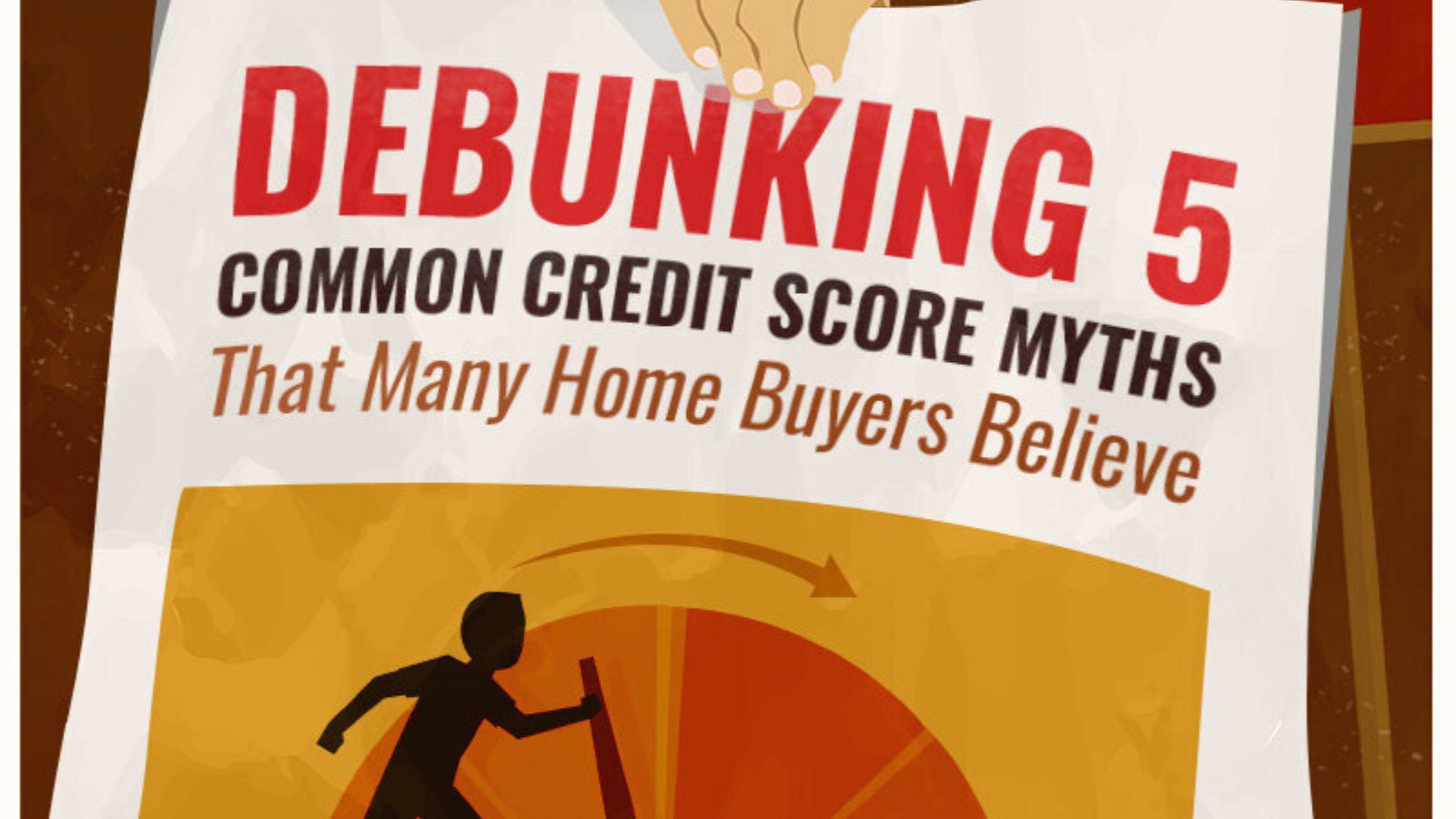As a prospective home buyer in Santa Cruz, it’s essential to understand the ins and outs of your credit score. A good credit score increases your chances of getting a mortgage and achieving homeownership. Unfortunately, there are several harmful myths and misconceptions surrounding credit scores that many borrowers believe. In this article, we will debunk five common credit score myths to help you make informed decisions when it comes to managing your credit.
Myth #1: Checking your credit score frequently will hurt or lower your credit.
It’s a common misconception that checking your credit score frequently can have a negative impact on your credit. However, the truth is that checking your own credit score is considered a “soft” inquiry and does not affect your credit score at all.
Hard inquiries, on the other hand, occur when a lender or company checks your credit as part of a loan or credit card application. These inquiries can have a temporary negative effect on your credit score. It’s important to be aware of the distinction between soft and hard inquiries to ensure you are not unnecessarily harming your credit.
To monitor your credit score over time, you can easily check it on websites like creditkarma.com or annualcreditreport.com. Additionally, due to the COVID-19 pandemic, all three major credit bureaus – Equifax, Experian, and TransUnion – have offered free weekly online reports.
Myth #2: Closing an old credit card will improve your credit history.
Closing an old credit card is often believed to improve your credit history, but this is a myth. In reality, closing a credit card, especially one with a balance, is more likely to hurt your credit score than improve it.
A significant factor in determining your credit score is the length of your credit history. If you close a credit card that you’ve had for a long time, it can negatively impact your credit score. It’s best to leave your accounts open, especially if they’re in good standing and have no annual fees.
Myth #3: Carrying a balance on your credit card will improve your credit score.
Some people believe that carrying a balance on their credit card will help improve their credit score. However, this is far from the truth. Carrying a balance on your credit card does not improve your credit score; it only increases the interest you owe and potentially lowers your score.
Credit card balances directly affect your credit card utilization rate. The higher your balance, the higher your utilization rate, which can negatively impact your credit score. To maintain a healthy credit score, it’s crucial to pay off your credit card balance in full and on time each month.
Myth #4: Getting married will merge your credit scores.
Many people assume that getting married automatically merges their credit scores. However, even after tying the knot, you and your spouse maintain separate credit scores and credit histories. Marrying someone with good or bad credit does not directly affect your credit score.
When applying for a joint mortgage, lenders will consider both you and your spouse’s credit scores. If one of you has a low credit score, it could potentially impact your ability to secure a mortgage. It’s important to have open and honest discussions about your credit history with your partner and work together to improve your credit if needed.
Myth #5: Having a good income automatically means a good credit score.
Having a high income does not automatically guarantee a good credit score. Your income is not directly included in your credit report and does not impact your credit score. Credit scores are based on factors such as payment history, amount owed, length of credit history, new credit, and credit mix.
While a good income can help you manage your finances better, it won’t fix a bad credit history. To improve your credit score, focus on making on-time payments and managing your credit responsibly. Lenders will assess your income and credit score separately when considering you for a mortgage.
In conclusion, it’s crucial to separate fact from fiction when it comes to credit scores. Checking your own credit score frequently will not harm your credit, but be mindful of hard inquiries from lenders. Closing old credit cards can potentially hurt your credit history, while carrying a balance on your credit card does not improve your score. Getting married does not merge your credit scores, and having a good income does not automatically mean a good credit score. By understanding these myths and truths, you can make informed decisions to improve and maintain a healthy credit score in Santa Cruz.



